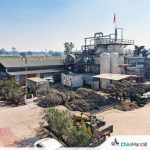New Delhi: A government-backed feasibility study has found that India has the potential to develop a robust domestic sustainable aviation fuel (SAF) industry that could meet internal demand and produce extra for export, reports The Hindu.
The report, prepared by the Ministry of Civil Aviation with the UN aviation body ICAO and supported by the European Union, estimates India could produce 14–33 million tonnes of SAF annually from sources such as vegetable oils, sugarcane bagasse, rice straw, and municipal solid waste. The figure does not include SAF from waste gas fermentation or power-to-liquid technologies.
The study is part of ICAO’s ACT-SAF programme, which provides assistance and training for sustainable aviation fuels. Civil Aviation Minister Ram Mohan Naidu will present the report at ICAO’s General Assembly 2025, starting September 23, a major triennial event that reviews global aviation policy.
ICAO’s Global Framework aims for a 5% cut in CO2 emissions from international flights by 2030 through SAF, lower-carbon aviation fuels, and cleaner energy. India has set targets of 1% SAF by 2027, 2% by 2028, and 5% by 2030 for international flights, in line with ICAO’s Carbon Offsetting and Reduction Scheme (CORSIA).
The report calls for urgent policy action, including forming a SAF Council with senior officials and industry leaders to plan the sector’s growth. It also recommends a clear policy framework to tackle issues such as slow commercialisation and high production costs.
The alcohol-to-jet (AtJ) process is identified as the “largest opportunity” for India due to the availability of ethanol feedstocks and easier transport. However, the report warns of potential competition for ethanol from the road transport sector, where ethanol-blended petrol (E20) is being promoted.
The study also notes that first-generation ethanol from food crops is the most practical option currently, as second-generation ethanol from agricultural residues, grasses, and wood is still scaling up slowly.

















